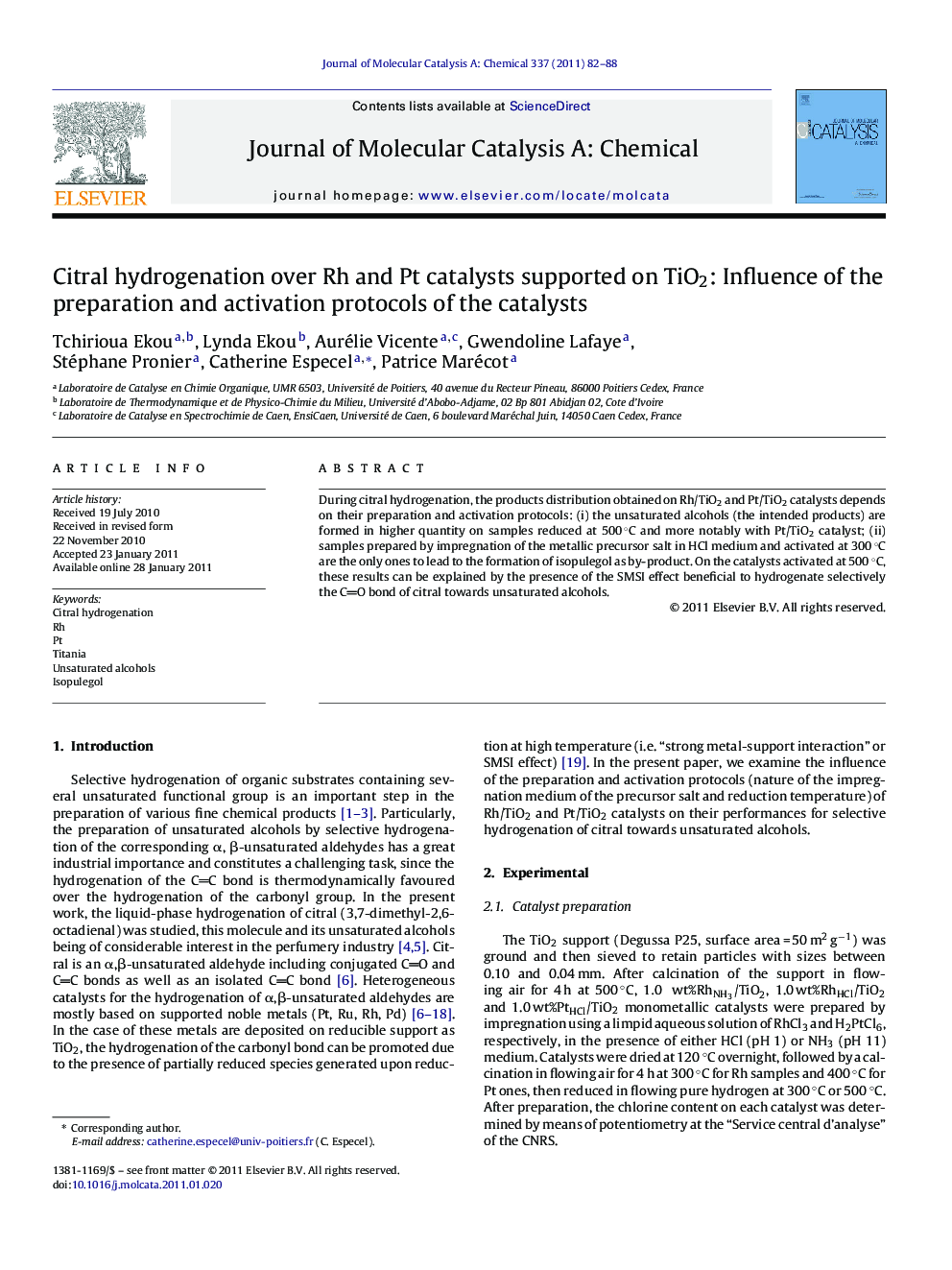| Article ID | Journal | Published Year | Pages | File Type |
|---|---|---|---|---|
| 66492 | Journal of Molecular Catalysis A: Chemical | 2011 | 7 Pages |
During citral hydrogenation, the products distribution obtained on Rh/TiO2 and Pt/TiO2 catalysts depends on their preparation and activation protocols: (i) the unsaturated alcohols (the intended products) are formed in higher quantity on samples reduced at 500 °C and more notably with Pt/TiO2 catalyst; (ii) samples prepared by impregnation of the metallic precursor salt in HCl medium and activated at 300 °C are the only ones to lead to the formation of isopulegol as by-product. On the catalysts activated at 500 °C, these results can be explained by the presence of the SMSI effect beneficial to hydrogenate selectively the CO bond of citral towards unsaturated alcohols.
Graphical abstractSchematic representation of the adsorption mode of citral on M/TiO2 catalyst reduced at high temperature (500 °C): () support in a partially reduced state TiO(2−x) (x < 2).Figure optionsDownload full-size imageDownload high-quality image (79 K)Download as PowerPoint slideFigure optionsDownload full-size imageDownload high-quality image (3 K)Download as PowerPoint slideResearch highlights► TiO2 supported Rh and Pt catalysts were studied. ► Catalysts for selective hydrogenation of citral towards unsaturated alcohols. ► Products distribution depends on preparation and activation protocols of catalysts. ► SMSI effect promotes the formation of unsaturated alcohols.
